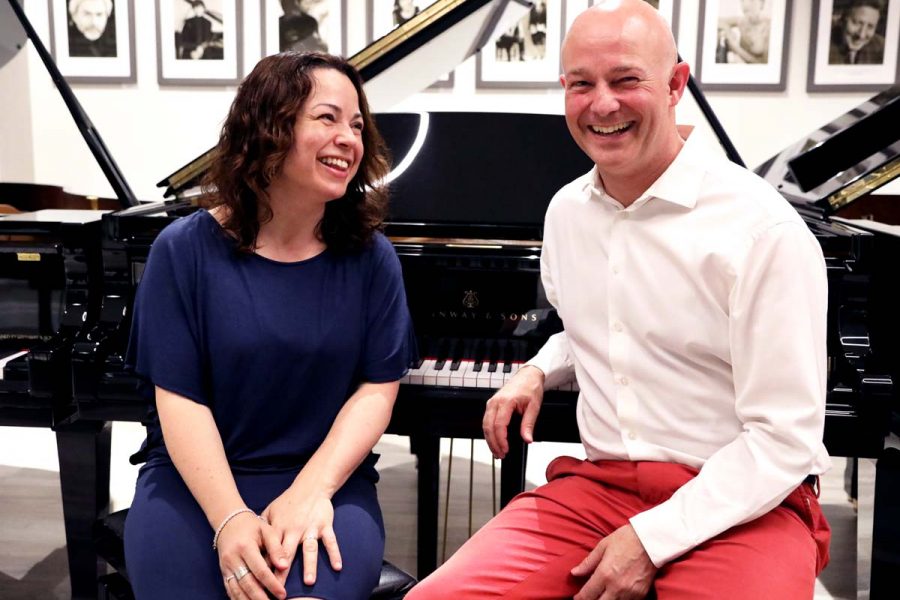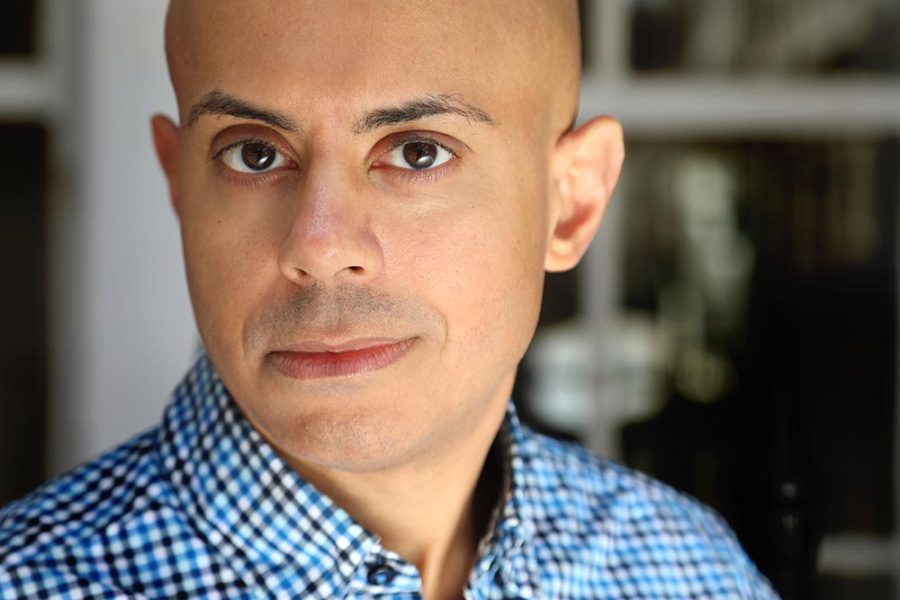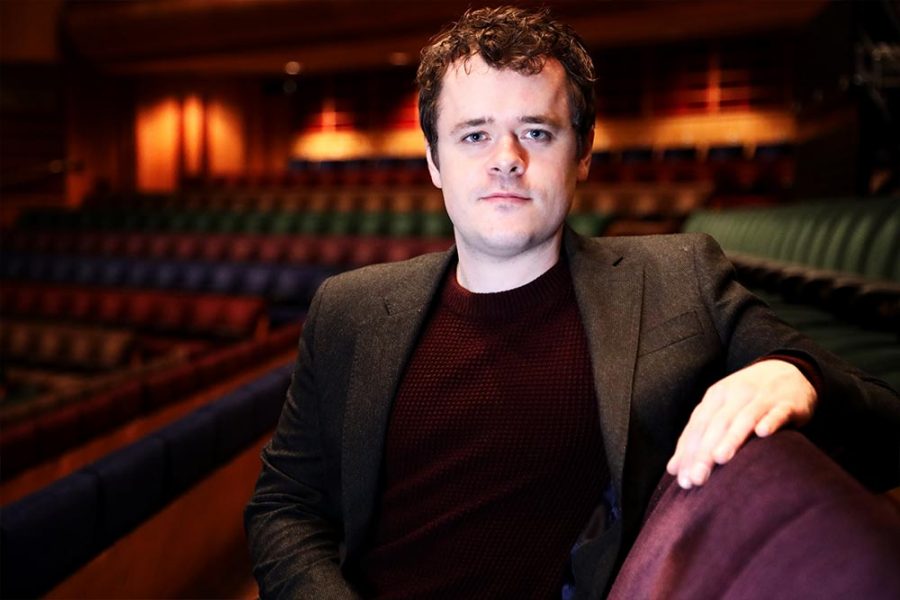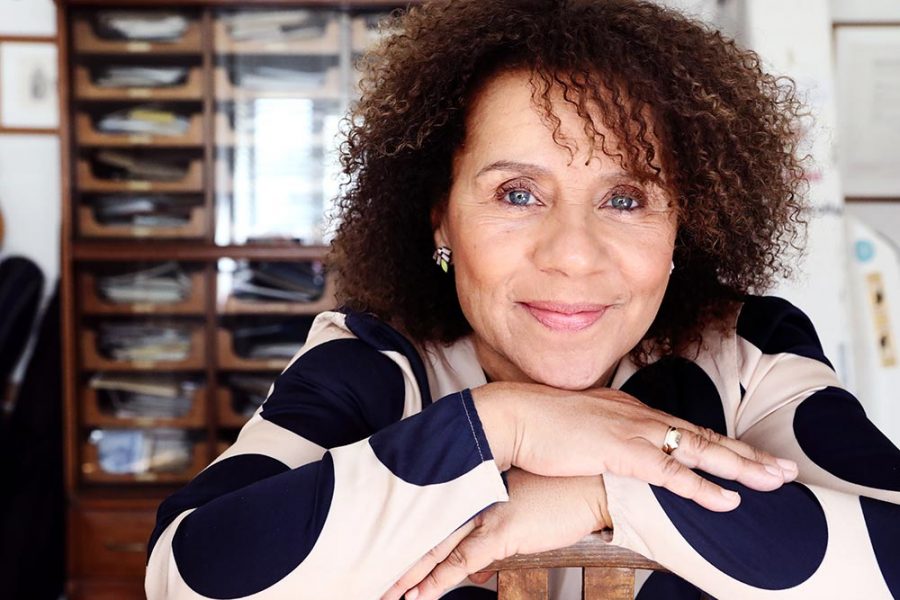In Conversation with Elisaveta Blumina

January 2017
Words by
Emer Nestor
Photos by
Frances Marshall
Russian-born German pianist Elisaveta Blumina has traversed the world seducing audiences with her unique blend of technical virtuosity, musical intelligence, and soulful interpretative facility.
She has appeared as guest soloist with many prestigious ensembles including the Malaysian Philharmonic Orchestra, the Dresden Philharmonic, Moscow Virtuosi, Sinfonia Varsovia, the Hamburg Philharmonic, and Staatskapelle Halle. Blumina has collaborated with a variety of conductors such as Thomas Sanderling, Yuri Temirkanov, Vladimir Spivakov, Gerd Albrecht, Andrey Boreyko, and Daniel Raiskin, to name but a few. As a much sought-after chamber musician, the St Petersburg-born pianist frequently shares the stage with Kolja Blacher, Pierre Amoyal, the Vogler Quartet, Wenzel Fuchs, Hans-Udo Heinzmann, Marina Prudenskaya, Johannes Moser, Vasilly Lobanov, and Julia Deyneka. Blumina’s recording portfolio lists labels such as Naxos, Genuin, MDG (Musikproduktion Dabringhaus und Grimm), CPO (Classic Produktion Osnabrück), Oehms classics, Charade, and Grand Piano. Aside from her thriving career as an international performer, recording artist, and competition adjudicator, Blumina is artistic director of both the Hamburg Chamber Music Festival and the festival Giluim: Musica Judaica Salzland in Schönebeck on the Elbe (Germany).
Here, we speak to the remarkable pianist, who is currently based in Dublin and Berlin, about her musical upbringing in St Petersburg, studying in Hamburg, her connection to the music of Polish-Jewish composer Mieczyslaw Weinberg, and her trio ‘Ensemble Blumina’.
I grew up in a family where music was extremely important. My mother is a concert pianist."

Tell us about your musical influences growing up in Leningrad (now St Petersburg).
I grew up in a family where music was extremely important. My mother is a concert pianist. My father, who worked as an engineer constructing space ships, also loved music. When he died, he left behind a huge collection of sheet music, music books, and vinyl recordings. Our house was a crossroads for musicians as we lived only a few minutes from the conservatory where my mother taught piano and chamber music. Every room in our apartment was occupied by some practicing violinist or cellist, and any meals prepared by my mother were instantly devoured by some hungry students. It was a great time.
What was life like as a student of the Rimsky Korsakov St Petersburg State Conservatory (Санкт-Петербургская государственная консерватория имени Н. А. Римского-Корсакова)?
For 11 years, I attended the special music school attached to the St Petersburg State Conservatory. My final exam was attended by the professors of the conservatory and I got the highest mark, a 5. Hence it was relatively certain that I would also pass the entrance exam for the conservatory. But only relatively, as there were other requirements besides music, such as an essay on Lenin, and an exam on the laws of didactics, in which one had to refer to Marxism-Leninism. I was clueless, and so I was very happy to see a leading professor of piano enter the room exactly at the moment in which I was to be examined. So it was obvious they wanted me to pass, however, it required nerves of steel. In the end I was accepted and I had two fantastic teachers: Professor T.L. Fidler in chamber music and Professor S.B. Vakman in Lied accompaniment. These classes were unique! Also in piano solo I began to study with the wonderful pianist Natalia Trull. Unfortunately, she soon moved to Moscow so I found myself without a teacher. However, after winning an international music competition in Hamburg, I was offered a studentship and decided to stay in Hamburg to study with Evgeni Koroliov.
During my time at the Conservatory in Leningrad I was leading a small committee which was tasked with the organization of concerts and recitals in various schools. I will never forget a concert where the audience consisted of deaf pupils who were told by their teachers in sign language when to applaud. I was so shocked by this experience that I quit this job.
Having studied with distinguished artists such as Andras Schiff, Evgeni Koroliov, Radu Lupu, and Bruno Canino, what are your lasting impressions of these pianists?
I left St Petersburg at the age of 19. In the beginning life was very difficult for me alone in Hamburg and I did not speak any German. I’ll never forget how I came to my teacher, Evgeni Koroliov, on a dark and grey November day and told him that I was home-sick. He dryly replied: “Go practice!”. But from the outset I was fascinated by Hamburg and the German language. Only 20 years later did I return to St Petersburg and my home-sickness only occurred whenever I thought of my teachers in Russia. They had given me so much of their time, energy, and skill. I will always cherish the memory of their cordiality, discipline, and the phenomenal level of their art.
Andras Schiff is an extraordinary teacher…his lessons felt like magic. He was very critical and demanding, and has been instrumental in my progress. Also, Bruno Canino’s lesson were very inspiring. I did not speak Italian at the time and he taught me in German. In general, I was amazed at the ease with which all my teachers were switching from one language to another. Learning languages was not exactly an educational goal when I was in Leningrad…on the contrary! Too much interest in foreign languages could raise suspicion. I have kept in touch with Bruno Canino and it was exciting for me when he performed in my Hamburg festival.
Radu Lupu is, as far as I know, not teaching much. I came to him on a recommendation by Koroliov and played for him at his London residence. I vividly remember how precise and critical he was. I also remember his cooking skills, involving large quantities of beef which he served with great enthusiasm.
You were the first to perform the music of Mieczyslaw Weinberg in the West, how did this come about?
18 years ago, after a recital with cellist Josef Feygelson from New York, he asked me why I did not play Weinberg’s music. He enthusiastically told be about the composer, his music, and tragic life. At the time, I was studying in Hamburg and was short on time. However, a little later I started looking into Weinberg’s music and became curious. I was then invited by the Bavarian State Radio to record a CD of Weinberg’s music—Sonata No. 1. The children’s album appeared in 2009 and it was an immediate success with critics and audiences alike. I was invited to various radio stations for interviews and my life with Weinberg began to take shape. I played works by Weinberg in almost every recital, and I dedicated the Hamburg chamber music festival (2013) to Weinberg. I have been invited to play his music in Lockenhaus, and to teach about Weinberg at the Kronberg Academy. For several years, I kept suggesting works by Weinberg to Gidon Kremer, and one day he replied: “your love of Weinberg’s music has been contagious…thank you very much for this infection!”.
At about the same time I had been recording all of Weinberg’s chamber music with woodwind instruments. Later, I recorded the chamber music with string instruments, together with Kolja Blacher, Johannes Moser, and Nabil Shehata. I am currently recording the entire piano works by Weinberg and I am working on a book about him.
I will always cherish the memory of their cordiality, discipline, and the phenomenal level of their art."

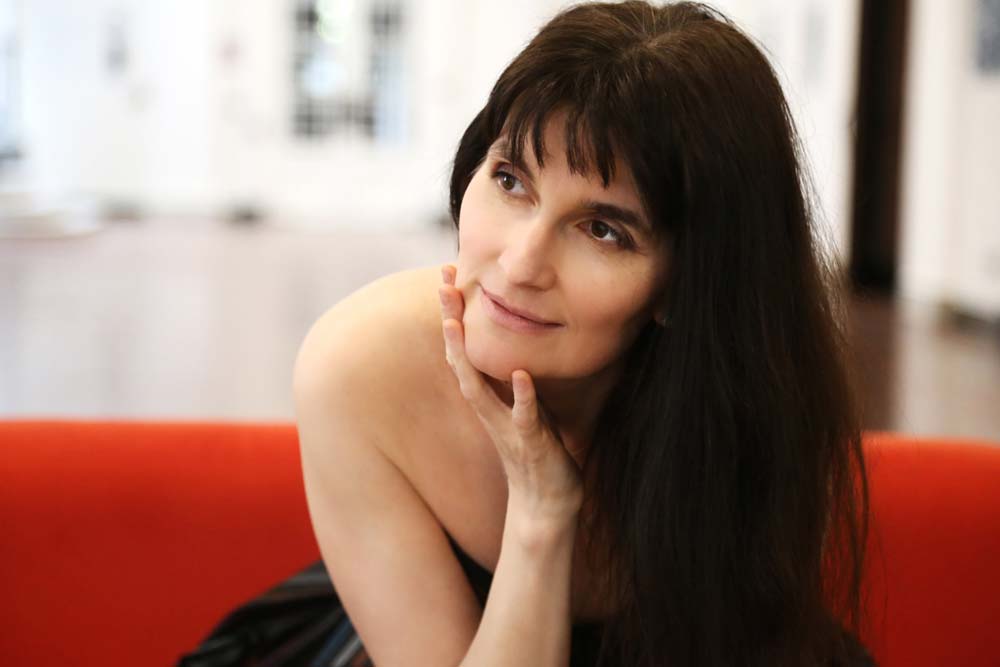

The education of pianists in Germany is often subsumed under 'correpetition', and is thus very much underappreciated and devalued."

Aside from your career as a soloist, you also maintain a vibrant presence on the world stage as a chamber musician — tell us about your trio Ensemble Blumina.
Chamber music is my life. Perhaps this is due to my presence, from my toddler years, in the class of my mother, Professor Mara Mednik, who worked as a professor for chamber music at the Leningrad conservatory. As mentioned earlier, in those times chamber music education was excellent in Russia, and St Petersburg in particular. It is the foundation for all my activities. A majority of pianists dream of a solo career in the world’s great concert halls, however, many end up working as accompanists and chamber musicians.
This is very bad, for two reasons. A lack of qualification and motivation means that their chamber music does not convince anyone. This is then perpetuated by the next generation who are exposed to such low standards in chamber music, which in turn reinforces their desire to become soloists. The difference to the Russia of my time could not be greater.
In Germany and Western countries more generally, a recital with, say, violin sonatas by Beethoven, would be announced with the violinist in large letters and the pianist barely mentioned in a footnote. However, in Russia this would have been announced as a recital for a duo of two equal partners. This is how it should be! The same applies to Lied accompaniment.
The education of pianists in Germany is often subsumed under ‘correpetition’, and is thus very much underappreciated and devalued. During my student days in St Petersburg, this was fundamentally different: for any piano student, the lied accompaniment and chamber music classes were an integral part of the education, and the pianists teaching these subjects were highly recognized, famous pianists themselves. Chamber music is the school of life. You have to be technically perfect, but you have to breathe together, to listen, and to live together. Last but not least, chamber music helps to develop social intelligence!
I am currently playing in several ensembles. I play in a piano trio with Noah Balgley-Bendix and Sennu Laine, and I am in collaboration with the Berlin-based saxophone quartet Clair Obscur. I am recording my 25th CD of Jazz compositions by Nikolay Kapustin, and for over 9 years I have played in the trio Ensemble Blumina with oboe player Kalev Kuljus and bassoonist Mathias Baier. For our latest CD as a trio, we have been awarded the Echo Klassik prize for the best performance of 20th-century chamber music.
When not music-making, how do you like to unwind?
As a child, I was a keen dancer and had a passion for the ballet. I had been accepted into the famous Vaganova ballet school [Vaganova Academy of Russian Ballet] and was determined to become a ballerina. However, based on X-ray scans, doctors concluded that I would grow too tall for a ballerina, and suggested that I be sent back to the music school for gifted children. As the Conservatory in St Petersburg is next door to the Hermitage [The State Hermitage Museum], I often spent time there, and I developed a strong interest in the arts. In recent years I have started painting, mostly abstract art, with some success among friends. The CD label Naxos has shown interest in using some of my paintings for future CD covers.
As a frequent adjudicator in competitions, what is most important to you when assessing young musicians?
Through my teaching activities I notice that many young musicians are more concerned with themselves than with the music. It should be clear to any musician that the music is centered around the composer and is not a vehicle for showing off. When a young musician has actually understood a piece of music, this is not only audible but very visible. The body language at the piano and the movements while playing are quite telling! Additionally, the current fashion of listening to many different versions of a given piece, such as on YouTube, can be very damaging. This makes it very easy to just copy other musicians without any real thought process. However, a teacher, and the audience, can quickly see through such shallowness.
What does 2017 hold for you?
2017 will be a busy year with a variety of programs, concerts, recitals, and festivals. A project close to my heart is the third edition of the Giluim festival in Schönebeck which I am organizing on 24-25 April. The main focus of this event is the forgotten Jewish composers, some of whom have perished in the Holocaust. In November the Hamburg Chamber Music Festival will take place again, this year under the theme of ‘migration’. I am bringing together German, Russian, Israeli, and Arab musicians, and also dedicating a concert to the Syrian refugees.

To find out more about Elisaveta Blumina see: www.blumina.com
All images displayed in this article are subject to copyright.
Share this article


